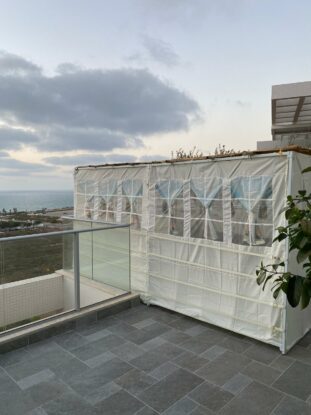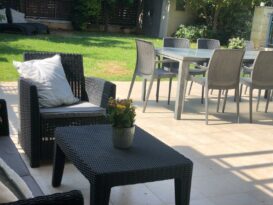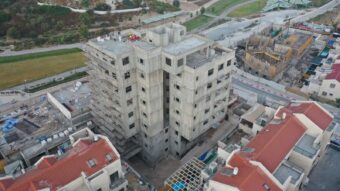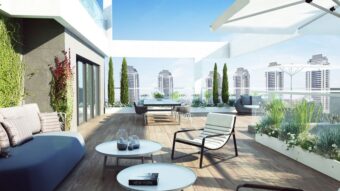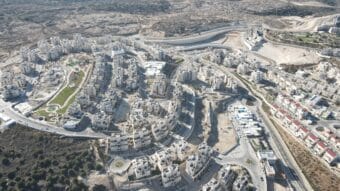The “Sukkah balcony” has become a must-have for almost any religious person interested in buying an apartment in Israel. According to Israel real estate appraisers, a Sukkah balcony may raise the value of an apartment by around 5%, while the planning committees use it to funnel ultra-orthodox buyers into certain neighborhoods and turn them away from others.
Until the 1990s, most people who lived in an apartment building in Israel who wanted to fulfill the Torah commandment to “dwell in Sukkot” during the week-long Jewish festival of Sukkot, would construct a temporary hut in the courtyard of their building or in a public area close to the building. In recent decades, however, a new design element has emerged, which has become a must-have among ultra-orthodox apartment buyers, and, to a large extent, among national-religious buyers too: a Sukkah balcony. This refers to a balcony or terrace, that is, wholly or in part, directly open to the stars, not covered by anything including another balcony.
Construction companies build the Sukkah balcony in compliance with Halacha
Israel real estate appraiser Yitzhak Raphael, who previously served as the director of the local planning committee of the ultra-orthodox city of Bnei Brak says, “in most cases, the Sukkah balcony is not the main balcony of the apartment, and the area does not exceed eight square meters. In the ultra-orthodox and religious sectors, the Sukkah balcony is an almost necessary condition and without this, no purchase deal will take place. According to Halacha (Jewish law), the Sukkah balcony must be open to the sky and to the stars, and construction companies that build for this population are careful to build balconies in compliance with the Halacha“.
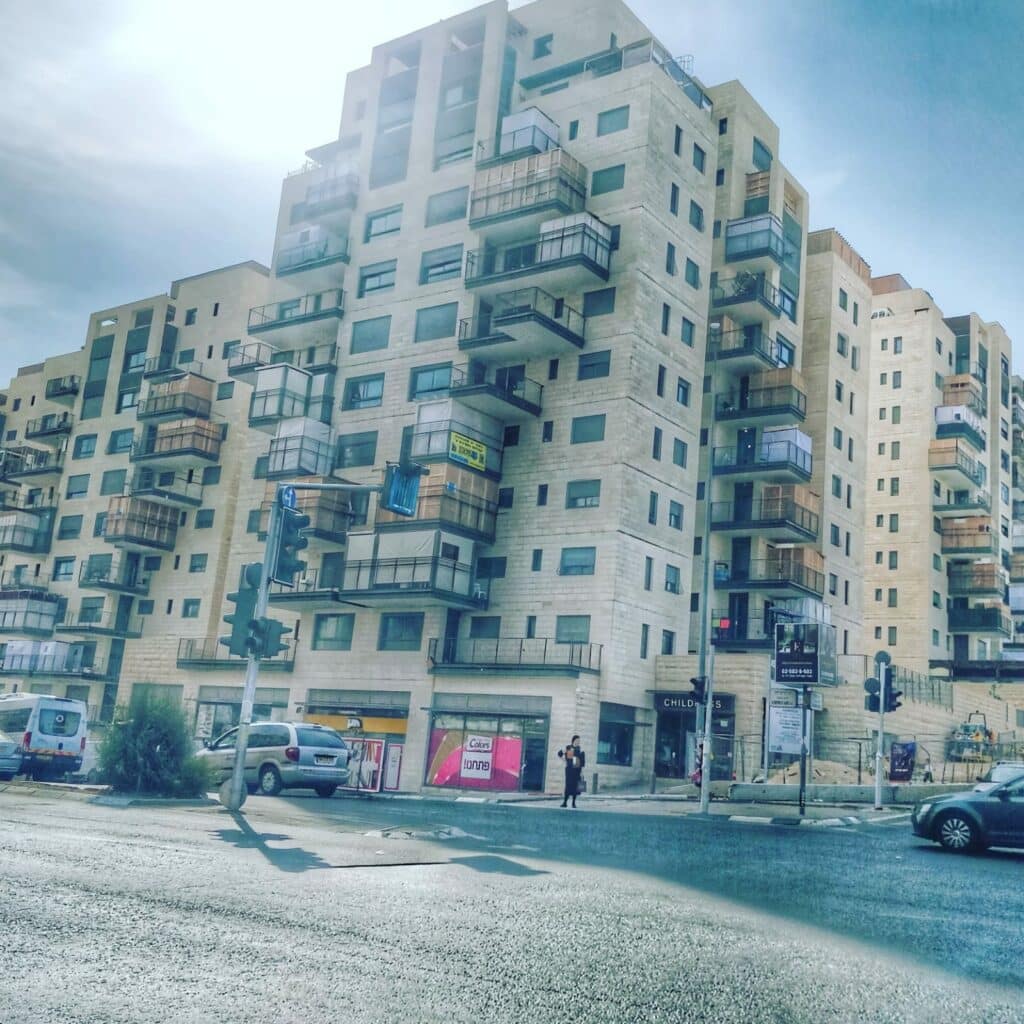
Legal implications of building a Succah balcony
Asked whether a building permit is required to erect a Sukkah on the Sukkah balcony, Raphael surprisingly replies that according to the letter of the law – such a permit is indeed required, in addition to the neighbors’ consent to the construction on the balcony. However, Raphael adds that “since the Sukkah is generally built for only eight days, the authorities use common sense and do not issue demolition orders. But where the Sukkah continues to be used even after the holiday ends, for storage purposes, for example, then according to the authorities, it is viewed upon as a permanent construction, for which a permit must be issued, otherwise, the builder risks receiving a demolition order and fines.”
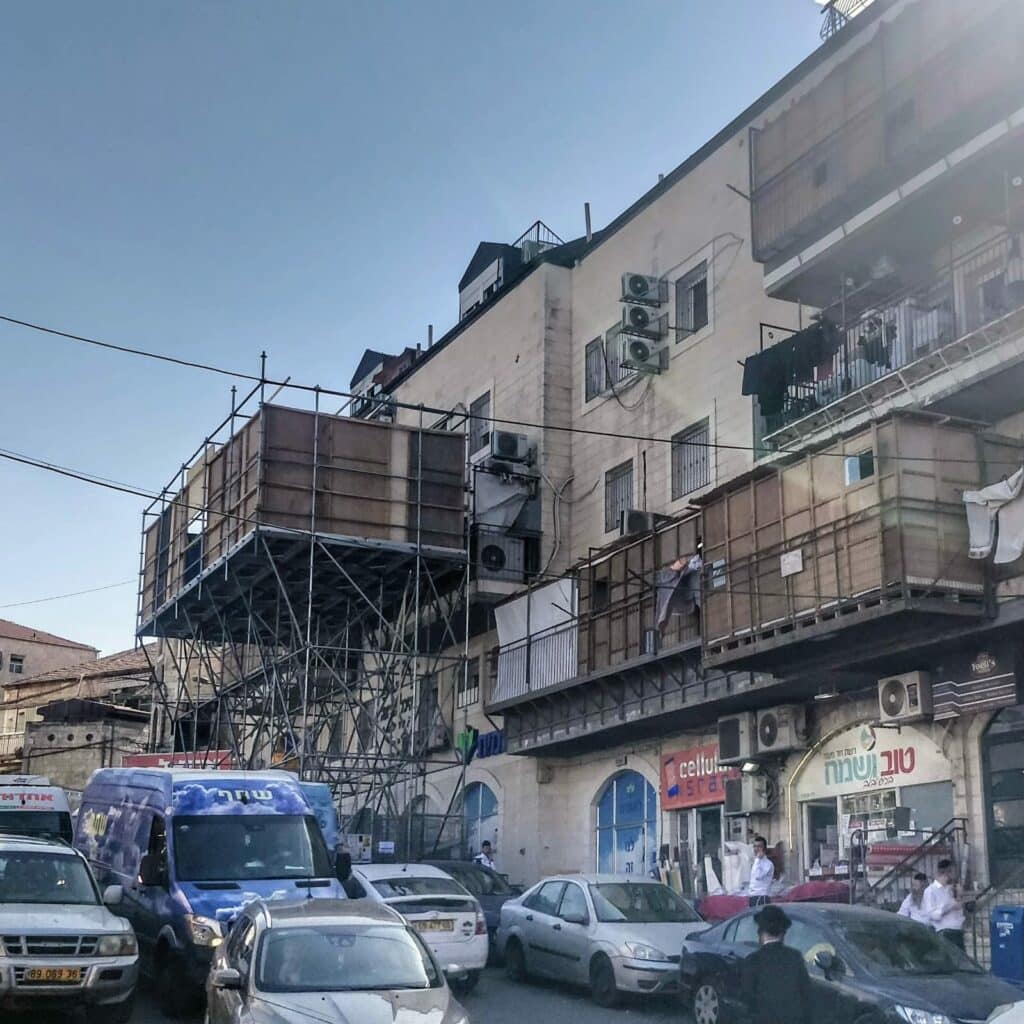
Another restriction on activity related to the Sukkah stems from Israel’s noise laws, according to which, quiet must be maintained in a residential area between the hours of 2 pm and 4 pm, and between 11 pm and 7 am the next morning. During these hours it is forbidden to sing, shout, turn on speakers, etc. in a way that disturbs the peace of the neighbors. However, on holidays, noisy activities may be performed, within reason, until midnight.
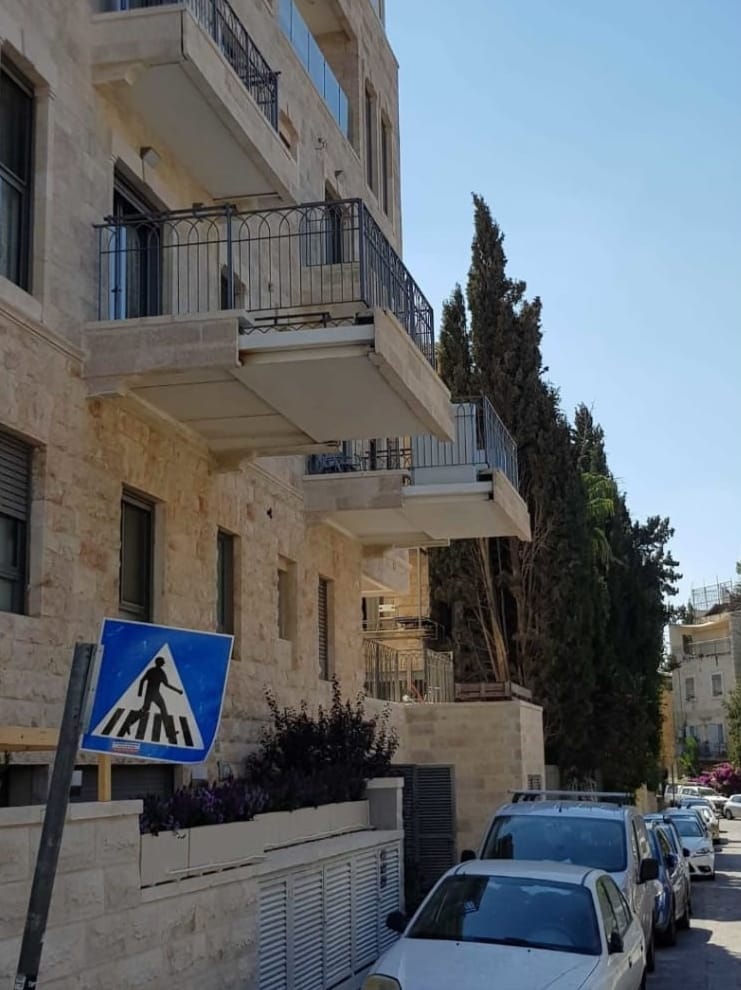
According to Chairman of the Real Estate Appraiser’s Association in Israel, Haim Mesilty, “in religious neighborhoods or settlements, the Sukkah balcony may add 4%-5% to the value of the property and sometimes even more than that, depending on the size of the balcony and the alternatives that exist to building a Sukkah in public areas or in the courtyard of the building.” “Those interested in covering the balcony to make it more functional during the rest of the year can do so relatively easily using a light material such as “Suntuf” which does not require a building permit.
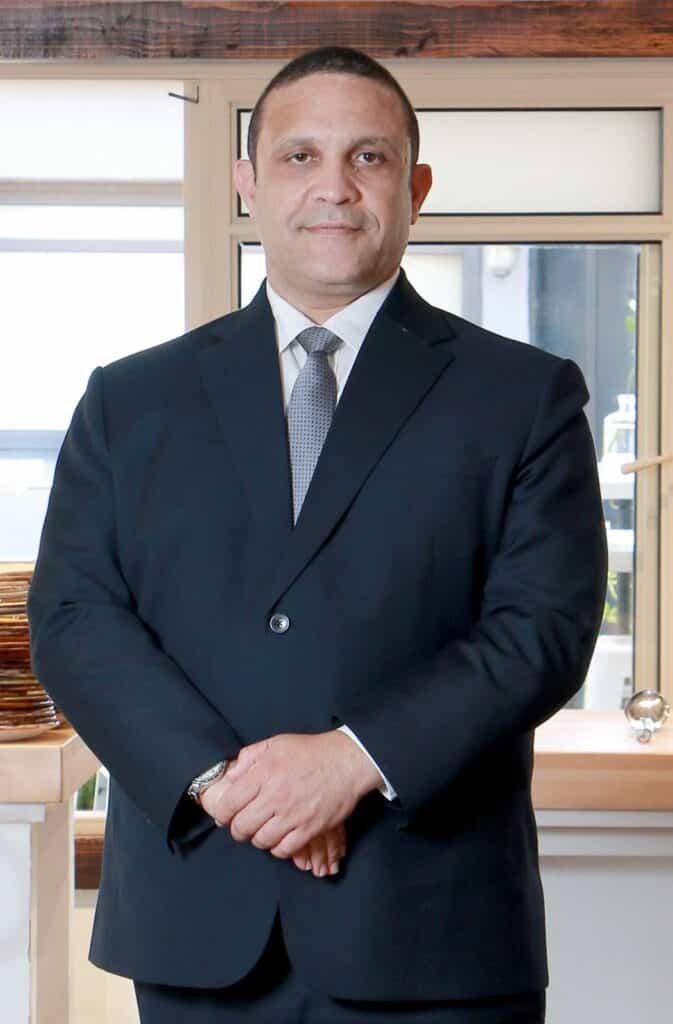
Ramat Beit Shemesh Hey “Neve Shamir” neighborhood bans construction of the Sukkah balcony
How significant Sukkah balconies have become in the eyes of the ultra-orthodox public (Haredim) can be learned from the story of the Neve Shamir neighborhood currently being built in the city of Beit Shemesh, which is close to Jerusalem. Over the past 30 years, Beit Shemesh has undergone a process of becoming more and more Haredi as the proportion of its Haredi residents steadily increases and is estimated to have recently crossed the 50% threshold. This phenomenon has led to quite a few conflicts within the city in recent years, especially in areas where a mixed population resides, where non-ultra-orthodox residents have refused to adopt the ultra-orthodox lifestyle of their neighbors.
Recently, the State, together with the Municipality of Beit Shemesh, marketed land for the construction of two large new neighborhoods in the city in order to prevent future conflicts. It was decided that the Ramat Beit Shemesh Daled neighborhood would be earmarked for the ultra-orthodox public, and Ramat Beit Shemesh Hey (also known as “Neve Shamir”) was intended for the national-religious, traditional and secular public. Since there is no legal option to prevent Haredim (or any other group) from purchasing apartments where they want to purchase, the Ministry of Housing and the Municipality ordered the developers who purchased the land not to build Sukkah balconies in the apartments, hoping it would alienate ultra-orthodox purchasers.
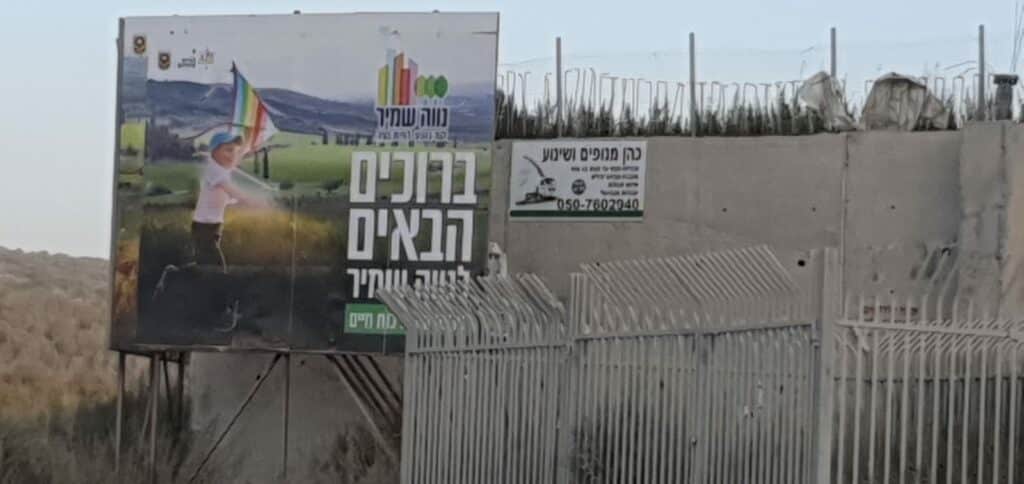
However, at least one contractor has already announced that he does not intend to comply with the directive and that he plans to build Sukkah balconies regardless. The decision was made by the construction company Namdar on the grounds that a Sukkah balcony is also a sought-after feature among national-religious buyers and even among secular buyers. Namdar also seems disinterested in giving up the potential for the sale to the ultra-orthodox public in the neighborhood, since many predict that, despite the government’s efforts, the neighborhood will become ultra-orthodox too. However, the true reason for building the Sukkah balconies seems to be the increase in value that they to the new apartments.
Today, almost all new apartments in Israel are built with balconies
In a hot and sunny country like Israel, where the climate invites an “outside of the house” lifestyle most of the year, the concept of a balcony, in general, has turned into a common and sought-after feature in residential buildings across the country. Today, close to 100% of new apartments being built include a balcony, ranging from ten to twelve square meters in size, in standard apartments. Covid-19, which has led to people working and staying inside the home for unprecedented periods, has further honed the contribution of balconies to homes in Israel and to the quality of life of residents.
